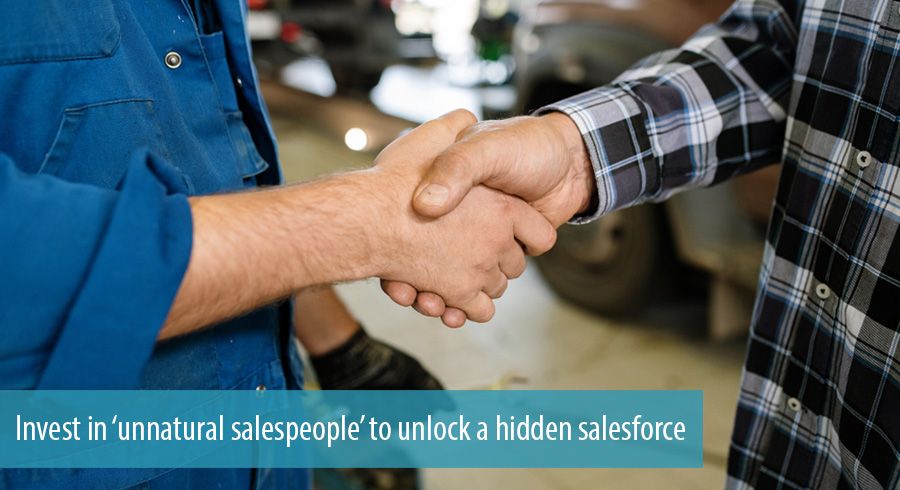Invest in ‘unnatural salespeople’ to unlock a hidden salesforce
According to Gary Williams, founder and CEO of professional services business development coaching consultancy BD Coaching Hub, unnatural salespeople can down the line provide to be the secret weapon to winning work.
Many people in professional and technical services organisations have fantastic relationships with clients – genuine relationships built on trust and respect. They wouldn’t necessarily describe themselves as salespeople. But they find themselves in positions where they need to contribute to the growth of their organisations by uncovering opportunities for themselves and others, managing client relationships and even winning new clients.
All too often, however, these individuals are not considered part of the sales force and therefore don’t always receive the same training as their business development colleagues. These so-called ‘unnatural salespeople’ can sometimes be labelled as ‘seller/doers’ in consultancies. They may even see sales and selling as a dark art and a little bit ‘grubby’.

However, by investing in their selling skills – without turning them into salespeople – business leaders can unleash a potent weapon to uncover more opportunities and drive client loyalty.
The untrained tend to fall into one of several different camps when it comes to selling:
- Do it well – through experience they have found a way that works for them
- Do it badly – they have the confidence but can be way too ‘salesy’ because that’s what they think good looks like
- Think they can’t do it – they see how the ‘do it badly’ group operates and decide they’re not like that
- Don’t try – they are firmly of the view that selling is just not what they do
Whatever category they’re in, the key to success is not to try to turn these people into the stereotypical salesperson. If you do this, you are unlikely to motivate them to learn new skills – and you risk putting them off even more. After all, if they had wanted to be salespeople, they would have chosen a different career path.
The first step is to get their buy-in to what professional, ethical selling looks like. Part of that involves debunking the view that all people who sell are like Del Boy [the lead character in the BBC sitcom Only Fools and Horses] and recognising that everyone who is in contact with clients is, in fact, selling. By changing the narrative from “we need you to sell our services” to “we need you to motivate clients to buy our services”, you change the emphasis from push to pull.
Once you have developed the right mindset, removed any barriers and engaged the ‘hearts’, you can then work on the minds and teach relevant skills and behaviours. There are different skills and behaviours required along the client’s buying journey but ultimately clients will buy when they know, like and trust you.
With this in mind, you have to teach patience and the art of moving the client along at just the right pace – never pushy but continuously motivating them to take the next step towards buying. With practice – both in the classroom (virtual or physical) and in the real world – the ‘reluctant seller’ builds confidence and, in time, becomes both willing and able.
When organisations develop all their client-facing people, they unlock a ‘hidden salesforce’. By asking a few more questions and listening a bit harder, these unnatural salespeople have the potential to unlock valuable new work.

